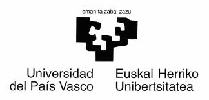The difficulties to guarantee the quality of the Basque productions may come from two sources:
- Some teachers may show problems with their general language competence. In fact, the institutions have had to adapt very fast to the demand of the society to learn in Basque. As a consequence, we can find various types of speakers in the university.
- On the other hand, the main problems are typically due to the lack of normalization and development of Basque, since this affects every speaker (students, teachers…).
Related to this, the TSE program has three general didactic goals:
- To raise awareness about the importance of the quality of texts and to be aware of the parts that each participant of the program must improve.
- To develop strategies to improve the quality of one´s texts, and to reach autonomy in this task.
- To dynamize the communication networks among teacher experts, in terms of sharing and fixing the resources.
These goals lead us to the basis that Carver (1983) proposed for the LSP teaching some time ago:
- To work on real material.
- To use tasks for specific purposes.
- To promote autonomy.
The development of the program is completely yoked with the aforementioned three ideas:
- From the very beginning of the program, we collect the texts that teachers use in their teaching and we work with those texts. Thus, we guarantee the real nature of the texts, examples and problems.
- The teacher-expert participants of the TSE program must do activities with specific goals: they must improve the quality of the texts that they use in teaching, and/or they must describe and work on the terminology that they use. Thus, those goals are directly related to their typical professional activity.
- It is not the task of the person in charge of the group to improve the quality of texts, but rather of the participants in the project, since the goal of the program is not to improve a specific text but to get the skills to autonomously improve texts.










